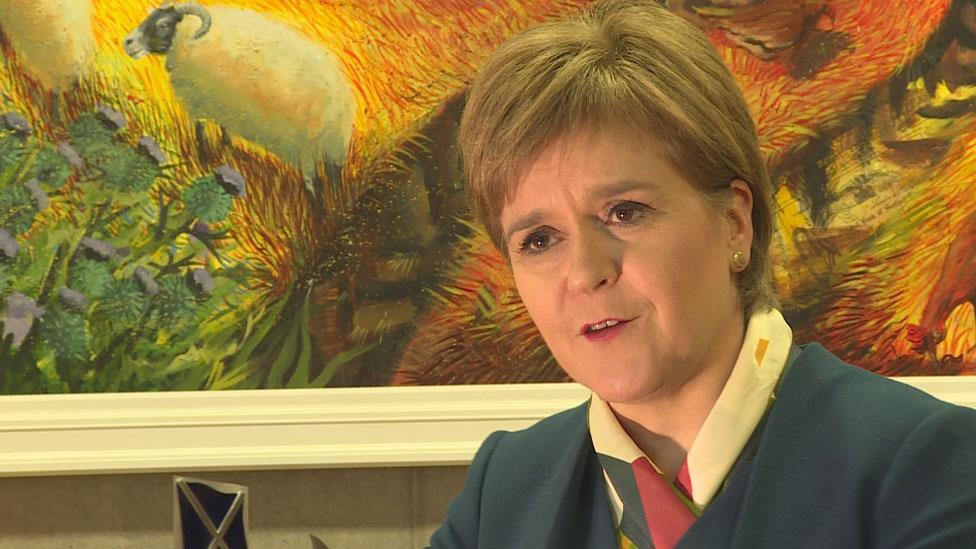Elmar Brok rules out separate Brexit deal for Scotland
- Published
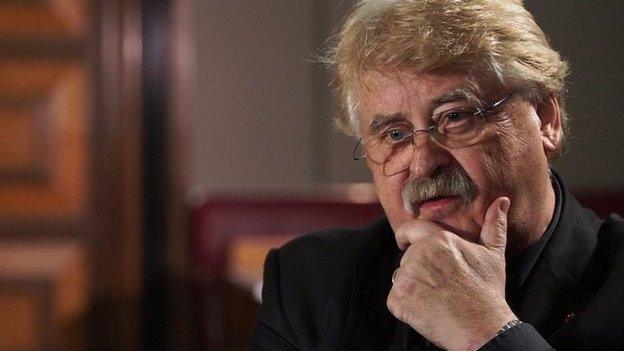
Elmar Brok ruled out the possibility of a separate deal for Scotland
A senior member of the European Parliament has rejected any possibility of a separate deal to allow Scotland to remain in the single market.
Elmar Brok, chairman of the parliament's foreign affairs committee, said there could be "no exceptions" for Scotland in Brexit negotiations.
The Scottish government said it recognised there would be one deal.
But they want a "differentiated position" for Scotland, said External Affairs Secretary Fiona Hyslop.
It came after Prime Minister Theresa May outlined her government's thinking on Brexit and said the UK could not remain in the European single market.
Mr Brok, a German MEP, told BBC Radio Scotland: "We cannot have two agreements with the United Kingdom and with Scotland."
Speaking on Good Morning Scotland, he said: "How can we do exceptions for Britain and then exceptions for Scotland. How can we do that?
"I don't think this is a cherry-picking thing, I am very sorry for Scotland because of that."
He added: "The implication of such an agreement is that Scotland stands as a member of the United Kingdom"
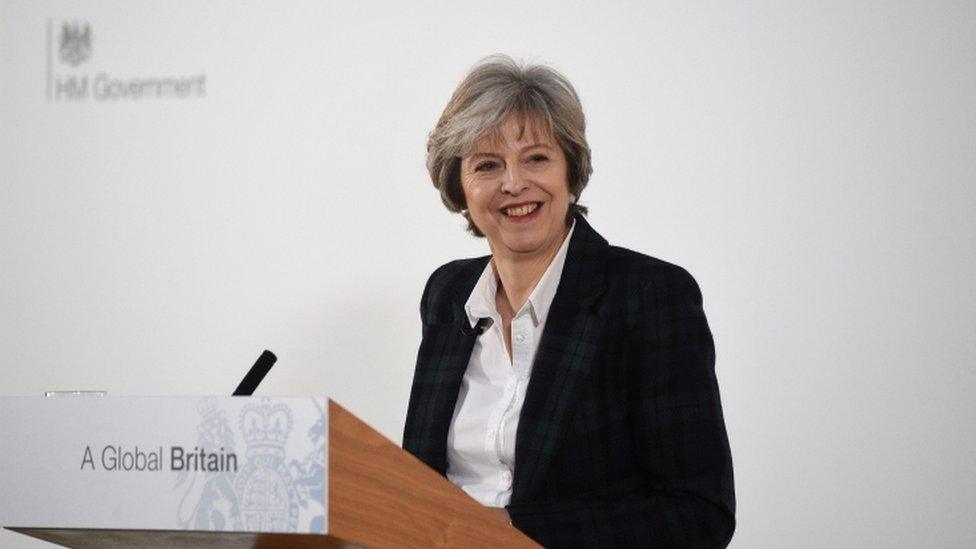
Theresa May set out her 12 objectives for the Brexit negotiations in a speech on Tuesday
Meanwhile Scottish Secretary David Mundell said he was not persuaded that a "Scotland-specific" solution was needed in relation to access to the single market.
He added that Scotland's Place in Europe - the Scottish government's post Brexit plan - proved that the two governments shared much common ground.
A "line-by-line analysis" of the document had been carried out, he said.
He added: "The conclusion that we have reached is that there are a whole range of areas in which the Scottish government and the UK government are actually on common ground.
"Many of those were mentioned by Theresa May in her speech - workers rights, protecting the rights of EU citizens that are already here, ensuring that we have common processes for dealing with criminal justice issues. We're on common ground on a whole range of issues.
"Where we're not on common ground... is on the ideological issue of whether Scotland should somehow be separate from the rest of the UK.
"We are not in agreement with the Scottish government on that and at the moment I have not seen evidence which would persuade me that there is a need for a Scotland-specific solution in relation either to market access or in relation to issues around migration."
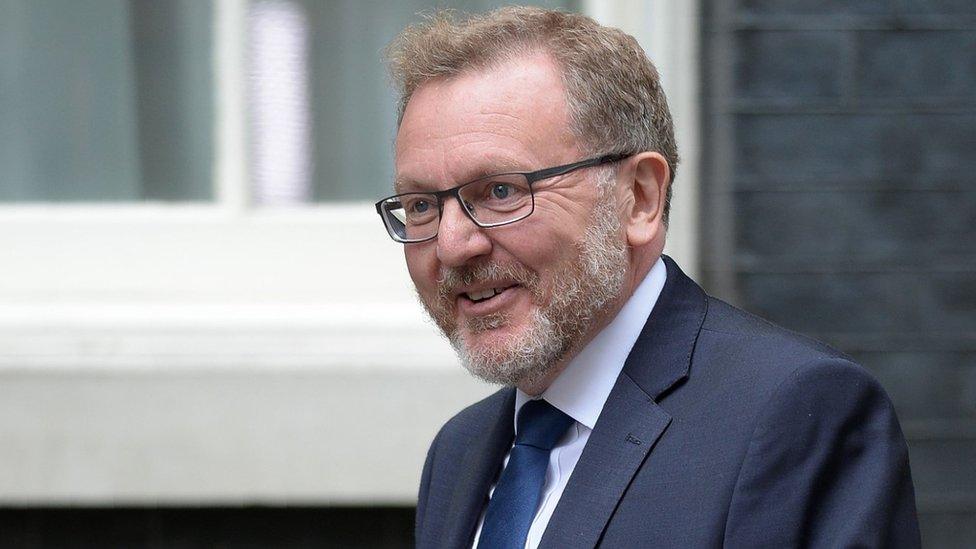
Mr Mundell said a "line-by-line analysis" of the Scottish government's Brexit document had been carried out.
The Scottish government insisted it was not asking for a separate deal with the EU on single market access.
Ms Hyslop said: "The separate deal would be a separate negotiation. We are not saying that, we are saying there should be one negotiation.
"We recognise that as a member state the UK will be negotiating and in that one deal we expect a differentiated position to be presented."
She said ministers anticipated the "hardest of hard" Brexits but they still have the opportunity to influence the UK government.
"If they're serious about us all be equals in terms of this partnership of nations, they have to make sure that the democratic mandate of the people of Scotland is represented and its parliament is listened to," she added.
'Maximum influence'
Regardless of the outcome of the Brexit negotiations, Scotch whisky will continue to benefit from a "zero tariff" on its exports to the EU, the US and Canada, according to the Scotch Whisky Association.
But its spokesman David Williamson told the John Beattie programme on BBC Radio Scotland that around 10% of its exports could be affected by a deal.
He said: "If we're outside the EU's bilateral trade deals, the likes of deals with Korea and Columbia and Mexico, there's a risk that the industry does lose some benefits, including lower tariffs in markets that represent around 10% of our exports - around £400m.
"Our priority has been to say, first and foremost, what we need to do on the international trade side of things is to make sure we bank the benefits we have already secured in those other markets.
"And then the UK should get out there and negotiate its own network of free trade agreements, having the maximum influence on its own trade policy."
- Published18 January 2017
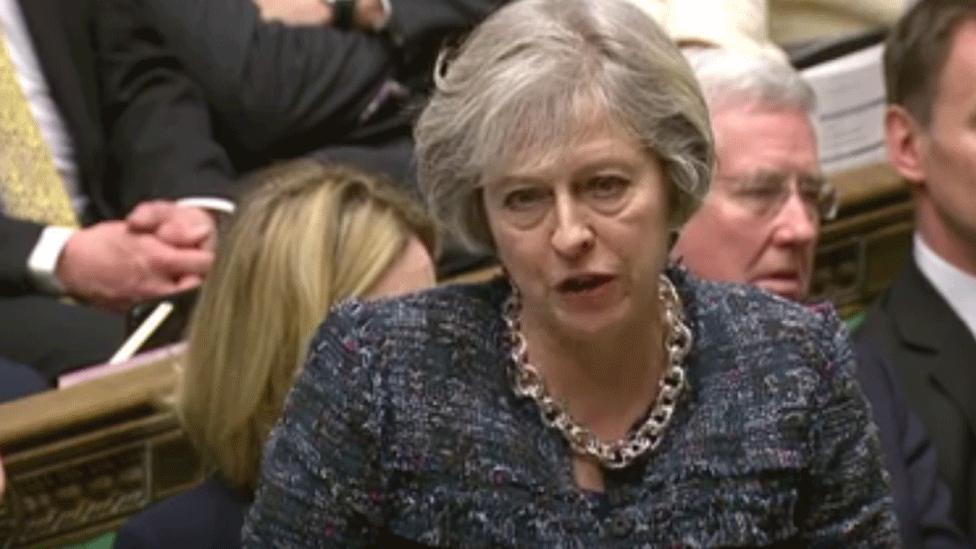
- Published17 January 2017
